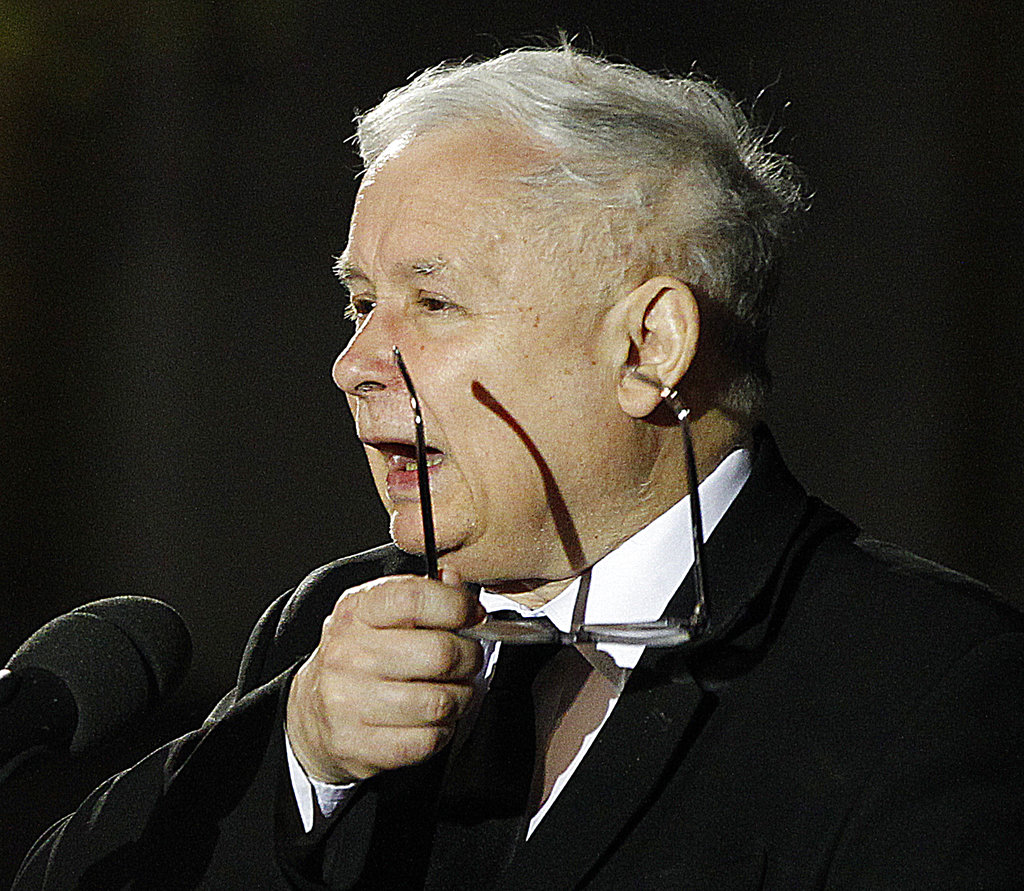Liberal commentators are once again deluding themselves into thinking that the Conservatives (PiS) losing power last year means the end of Jarosław Kaczyński as well as the party he leads. We’ve been here before many times, and he has always bounced back.
A careful study of the current political environment shows that the latest comeback could be far quicker than anyone expects. Yes, PiS may have fallen back in the opinion polls, and it is true that you cannot win elections by just energizing your core vote, but as the mass demonstration in support of PiS in the middle of a deep freeze in mid-January showed support for the party is real.
Moreover, the PiS electorate is coherent in its view on the Christian faith, sovereignty and patriotism, making it harder to shift. This means the party has a strong base to draw upon, whereas the current ruling coalition is a union of highly disparate forces, united only by their hate for PiS.
Tusk is counting on voters wanting to take revenge on PiS and that by delivering it, he will maintain popularity. However, that is unlikely to be enough for those who backed the parties forming the new government. People like to see former government people taken down a peg or two, but soon they will want to do the same to Tusk and his establishment.
The high public support to keep the Central Airport project alive despite Tusk’s moves to quash it shows that voters are not willing to sacrifice all that PiS stood for and achieved. Voters like the ambition of large-scale investment projects such as the airport and nuclear power plants. They also support rearmament, stopping illegal migration, and PiS’ social and economic policies. This is the capital that keeps PiS very much in play.
If Tusk does not produce some concrete gains for people with his return to power, he will soon feel Kaczyński’s breath on his shoulder. Tusk’s party made several promises before coming to power, and the voters will want to see him deliver. Repeating over and over again that the government is returning Poland to the rule of law will not cut much ice with the electorate.
The international situation is another factor that may see Tusk land in trouble. The war in Ukraine, the unpopularity of the Green Deal, and events in the U.S. may all undermine Tusk’s approach. The Weimar Triangle with Germany and France, which is once again being resuscitated with the mirage of European strategic autonomy, will not do anything for Polish security. In addition, Tusk’s vision of ever more European integration makes opposition to both the migration pact and the EU’s climate policies difficult for him to pull off.
Ultimately, it is security that may be the dealbreaker here. Rearmament alone is not enough. There is a need for restoring civilian defense and possibly compulsory military service. If a crisis arises and voters sense that the government has not done enough to prepare for it, poll ratings of the current ruling parties will go down, unleashing internal divisions.
Tusk and his backers are still celebrating their triumph, feeling the future is bright. What could go wrong? Surely this time, they are in power for good, right? But it all went wrong back in 2015, and history can repeat itself.






